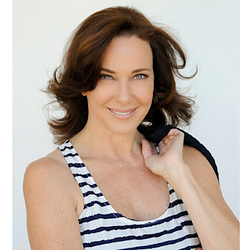
Blog post -
“No One Sings Like You Anymore”: Posthumous Grace from a Much-Missed Voice
Article by Quinton Kern
While I was absent-mindedly perusing the vinyl records at a local shop, a familiar phrase jumped out at me, along with the visage of a lost rock ‘n roll hero: “No One Sings Like You Anymore”, a famous line of the late, great musician Chris Cornell. The simple phrase immediately brought to mind the abyssal melancholy of “Black Hole Sun”, the Soundgarden song that the line was taken from and an old favorite of mine. The original, posthumous release of the album of covers was actually from a few months ago, but I had never gotten around to listening to it. With the release of the physical version, I decided to revisit a voice that had gotten me through many hard times.
For those unaware, Chris Cornell was the lead singer and rhythm guitarist of several alternative rock bands, with Soundgarden and Audioslave being the most popular. He was a great guitarist but, above all, he had a legendary voice. The man’s voice could create a bottomless ocean of sound, fluctuating between smooth and rough at his command to generate some of the loveliest and most gut-wrenching songs I’ve ever heard. Unfortunately, substance abuse and mental health issues had plagued him for most of his life, and he died by his own hand in 2017. Despite his untimely passing, there would be more to come, as Cornell also had a solo career and, in 2016, he recorded a small collection of covers. These would be released as “No One Sings Like You Anymore” digitally in late 2020 and physically in 2021, an album that not only showcases Cornell’s vocal talents, but also gives some insight into the music and artists who had inspired him over the years. The covers range from Guns ‘n Roses to John Lennon, giving Cornell plenty of different sounds to experiment with.
Passion is something that can be found in spades with Chris Cornell’s music, but often times it’s expressed through sorrow and rage. There are a few songs on this record that pull at the heartstrings, like “Sad, Sad City”, originally performed by Ghostland Observatory, but there’s also another dimension that comes through on many other songs: joy. Almost every song has a sorrowful edge to it; Cornell’s voice seems to just gravitate towards it. But there’s also that palpable feeling of joy that can be heard in the voice of anyone who’s singing their favorite songs, and it really shines through for Cornell, especially in tracks like “Watching the Wheels”, originally by John Lennon, or “You Don’t Know Nothing About Love”, originally by Carl Hall. Cornell also had a talent for imbuing melancholy lyrics with hidden strength, bolstering them with his magnificent baritone, as seen in “To Be Treated Rite”, originally by Terry Reid.
A cover album isn’t built on the base strengths of the performing artist alone; the talents of the original artists and the way that the performer makes them their own are just as important, and Chris Cornell takes plenty of welcome creative liberty in his transformations of these songs. The melancholy of “Patience” by Guns ‘n Roses is taken up a notch, with a colder atmosphere, and Lennon’s “Watching the Wheels” feels a lot more upbeat in Cornell’s version. Each song retains most of the spirit of their original recordings, but each has also been tailored to Cornell’s strengths, a perfect balance of evolution and homage.
Overall, it was an absolute pleasure to hear these songs given a new touch by a voice that I miss dearly. Covers may not be the same as original material, but the chance to learn more about the tastes of your favorite artists and see their interpretations of their favorite songs is one to relish.
